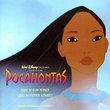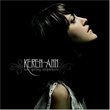| All Artists: Erich Wolfgang Korngold, Charles Gerhardt, National Philharmonic Orchestra Title: The Sea Hawk: Classic Film Scores of Erich Wolfgang Korngold Members Wishing: 4 Total Copies: 0 Label: RCA Release Date: 9/10/1991 Album Type: Soundtrack Genres: Pop, Soundtracks Style: Easy Listening Number of Discs: 1 SwapaCD Credits: 1 UPCs: 090266086320, 090266086344 |
Search - Erich Wolfgang Korngold, Charles Gerhardt, National Philharmonic Orchestra :: The Sea Hawk: Classic Film Scores of Erich Wolfgang Korngold
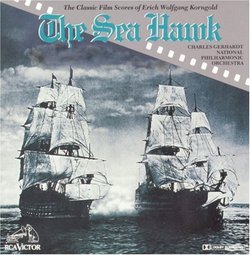 | Erich Wolfgang Korngold, Charles Gerhardt, National Philharmonic Orchestra The Sea Hawk: Classic Film Scores of Erich Wolfgang Korngold Genres: Pop, Soundtracks
|
Larger Image |
CD DetailsSimilar CDsSimilarly Requested CDs
|
CD ReviewsBe Careful Here--the CD Pictured Is NOT Correct! William F. Flanigan Jr. | North Potomac, MD USA | 01/06/2002 (5 out of 5 stars) "There were two release of this CD: (1) The Sea Hawk; BMG RCA Victor 60863-2-RG, 1972; conducted by Charles Gerhardt; performed by the National Philharmonic Orchestra; The Sea Hawk Selections: Main Title/Reunion/Finale; and (2) The Sea Hawk; BMG RCA Victor 7890-2-RG, 1989; conducted by Charles Gerhardt; performed by the National Philharmonic Orchestra; The Sea Hawk Selections: Main Title/The Albatross/The Throne Room Of Elizabeth I/Entrance Of The Sea Hawks/Rose Garden/The Orchid/Panama March/Escape From The Galley/Sword Fight/Strike For The Shores Of Dover/Reunion/ Rise, Sir Geoffrey Thorpe! /End Title. Both CDs are simply superb. But are different for not only THE SEA HAWK, but also for OF HUMAN BONDAGE and BETWEEN TWO WORLDS. Bottom line: Buy this one, but keep an eye open for the other." Pure pleasure William F. Flanigan Jr. | 09/09/2001 (5 out of 5 stars) "This was the very first of the RCA Red Seal series on film music which Charles Gerhadt conducted with the excellent National Philharmonic Orchestra, comprising some of the best musicians in England at that time from 1971 onwards. The music was vintage Korngold and Gerhadt did an excellent job. I bought the LP in 1974 and never tired of playing the record. The dash, pomp and pageantry were in full sail. Especially thrilling was the Main Title from The Sea Hawk. The mournful Tomorrow was just as gripping. Seems to me, the LP sound is far superior to the CD version. This record set the pace for the revival of film music. Lionel Newman`s excellent 1961 recording of excerpts of Korngold`s music is another superb album to have." The Best of Korngold Robert E. Nylund | Ft. Wayne, Indiana United States | 10/16/2006 (5 out of 5 stars) "This CD is a faithful, digitally-remastered version of the superb RCA Victor recording that was the first of a successful series of albums devoted to classic Hollywood film scores. Supervised by Erich Wolfgang Korngold's son George, Charles Gerhardt assembled a group of top London musicians in accoustically-perfect Kingsway Hall and recorded some of the best moments of Korngold's memorable scores for Warner Brothers, composed between 1935 and 1946.
Korngold was born in Austria in 1897 and became something of a child prodigy, composing remarkably mature scores for the concert hall and opera stage. RCA later recorded his amazing opera "The Dead City" under the direction of Erich Leinsdorf; this very fine recording helped us to appreciate the formidable talents of the young composer. Korngold enjoyed a successful career in Austria until the mid-1930s, when the growing threats of the Nazis (culminating with their takeover of Austria in 1938) led the composer to move to the United States. He had already worked with Max Reinhardt on an adaptation of William Shakespeare's "A Midsummer Night's Dream," which was further refined by Warner Brothers for an all-star production released in 1935. The successful adaptation of melodies from Felix Mendelssohn's incidental music led Warner Brothers to ask Korngold to write an original score for their swashbuckling epic "Captain Blood," the film that made a star of Australian actor Errol Flynn. Korngold was given royal treatment at Warner Brothers and was able to have his musical scores performed and recorded by that studio's outstanding orchestra, which was usually conducted by Leo Forbstein. Warner Brothers also had the reputation for the best sound recording equipment in the industry in the 1930's and 1940's. In 1938, as Warners Brothers released their wonderful Technicolor production of "The Adventures of Robin Hood," which again starred Errol Flynn, Korngold was invited to conduct the studio orchestra in a special broadcast performance of excerpts from his exciting score for that film. Fortunately, Warner Brothers had the foresight to record the performance, which featured narration by British actor Basil Rathbone, who played the villianous Sir Guy in the film. Studio chief Jack Warner also made a private recording of Korngold playing the piano at Warner's home; that remarkable performance was included in a special Warner Brothers 50th anniversary album. Whether he was composing, conducting, or performing his music, Korngold was clearly a gifted musician. This album uses the title of the 1940 swashbuckler "The Sea Hawk," a lush black and white epic that again starred Errol Flynn. Indeed, many of Korngold's scores were for films starring the legendary swashbuckler. He could write richly romantic tunes, including very thrilling melodies and equally sensitive love music. Samples of all that are included in this album. Sometimes Korngold wrote music for more modern scores, including "Kings Row," which is often considered Ronald Reagan's best film. He enjoyed writing a variety of music and became friends with a number of the Warner Brothers contract players, especially Bette Davis, who was once photographed meeting the composer. After World War II, Korngold was anxious to return to Austria, which had been so devastated by the war. He wrote a couple more scores for Warners and then went back home. He marked the end of the war by composing his own symphony, which had to wait many years for its first performances and recordings, probably because it was considered "old fashioned" by many musicians. In 1954, however, he adapted the music of Richard Wagner for a curious biographical film released by Republic Pictures, "Magic Fire." The success of this album led RCA Victor to produce many more albums, including another tribute to Korngold, as well as music by other great composers from Hollywood's "golden age," such as Max Steiner, Dmitri Timokin, Alfred Newman, and Miklos Rozsa. Fortunately, these recordings were taped in multi-track stereophonic sound and all received top-notch performances by the same group of London musicians under the direction of Charles Gerhardt." |

 Track Listings (12) - Disc #1
Track Listings (12) - Disc #1
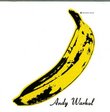
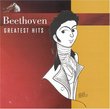
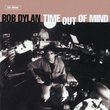
![I Will Go With You (Con Te Partiro) (Remixes) [Maxi Single]](https://nationalbookswap.com/cd//m/03/0703/440703.jpg)
